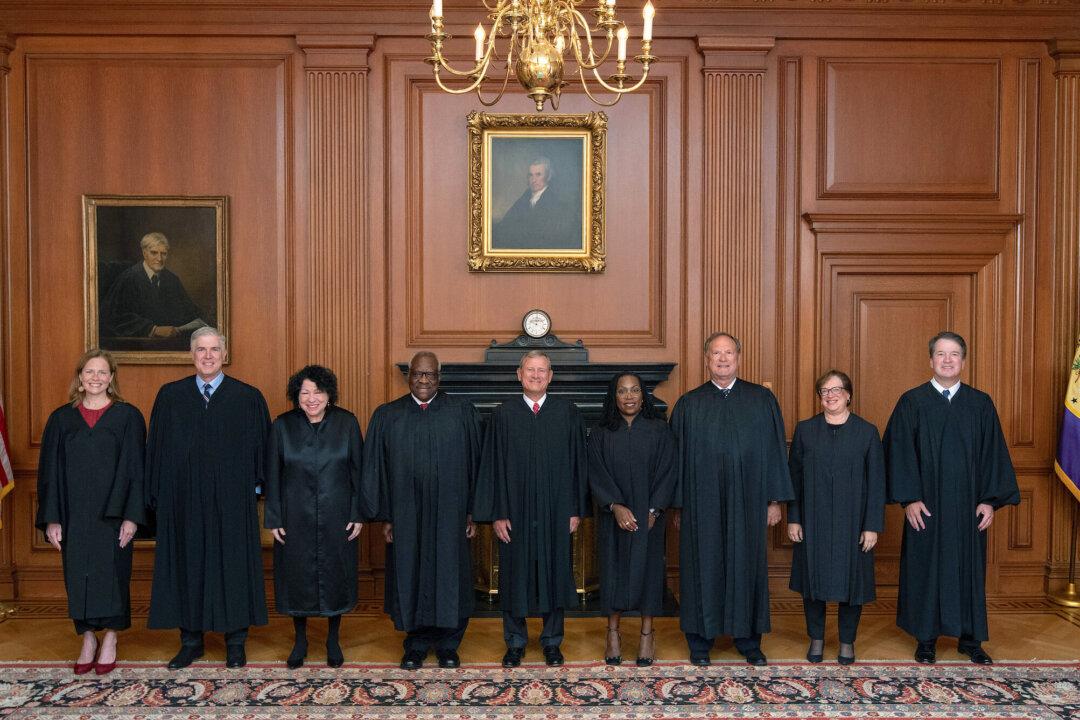The Supreme Court unanimously ruled on April 18 that New Jersey may unilaterally withdraw from the interstate compact that created the Waterfront Commission of New York Harbor in the 1950s to combat corruption.
New Jersey decided in 2018 to leave the interstate compact that created the commission in 1953 that bestowed regulatory and law-enforcement functions on the commission. That year, then-New Jersey Gov. Chris Christie, a Republican, signed legislation allowing the Garden State to withdraw from the compact. Christie was succeeded in the post by Phil Murphy, a Democrat.





